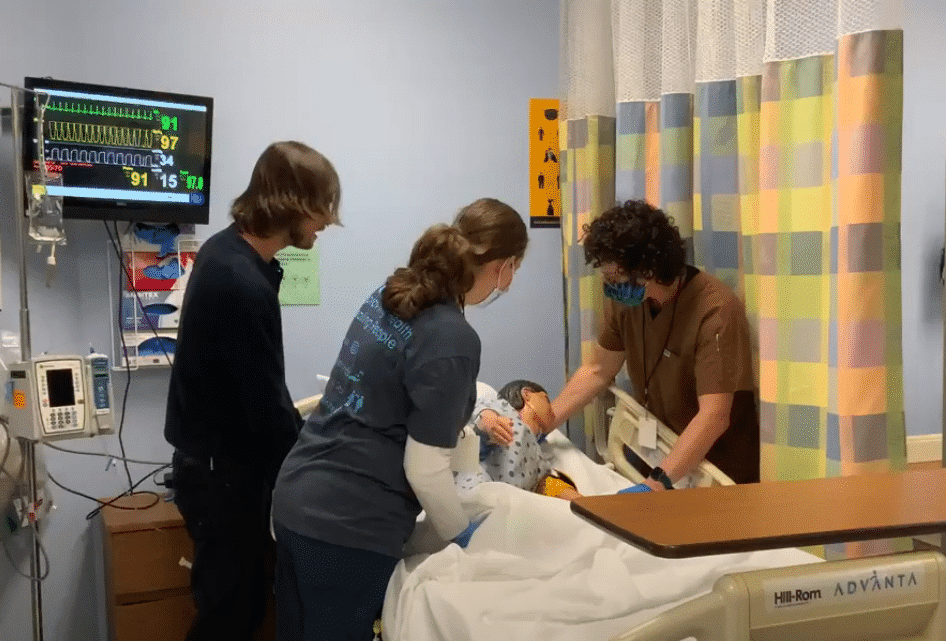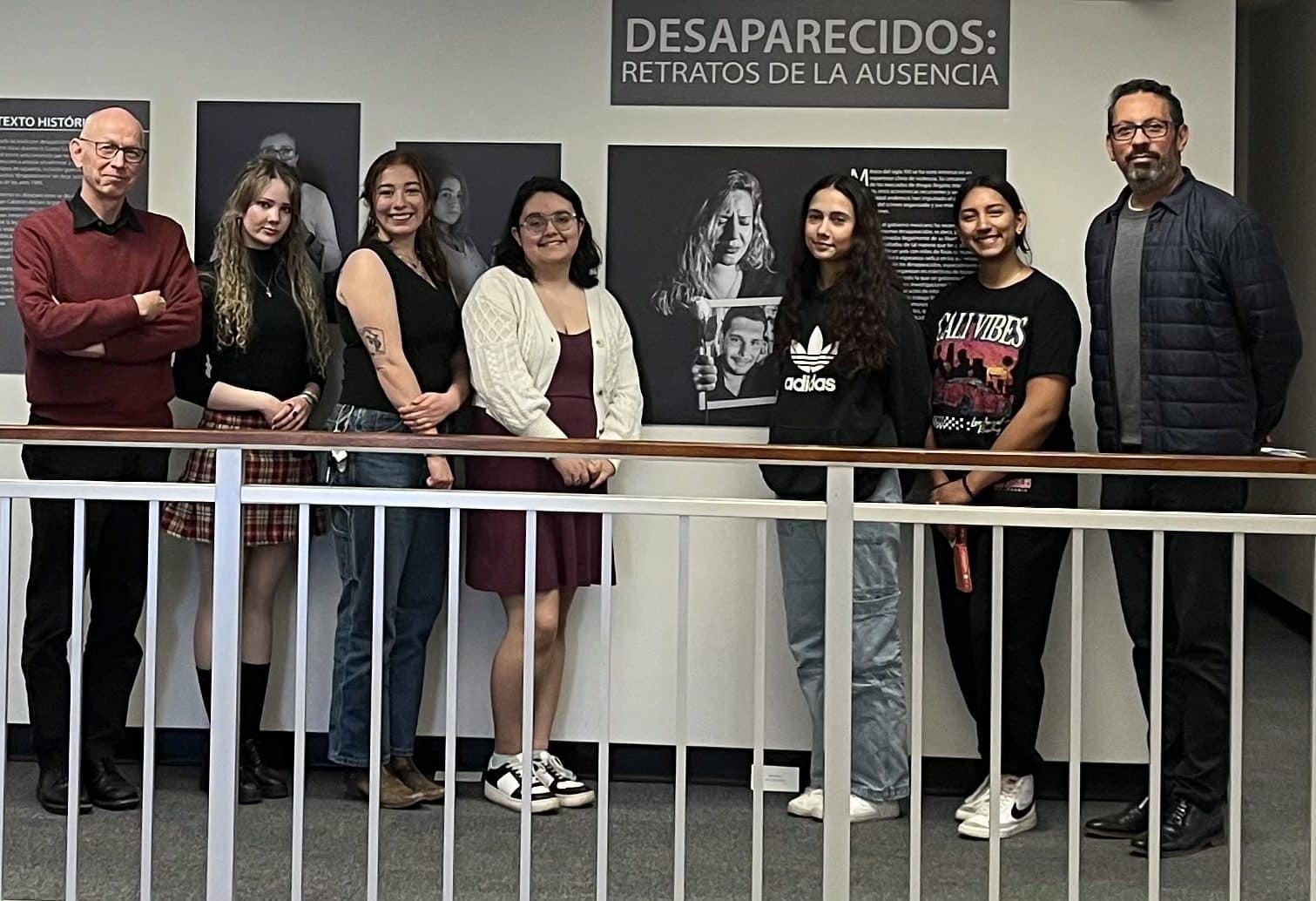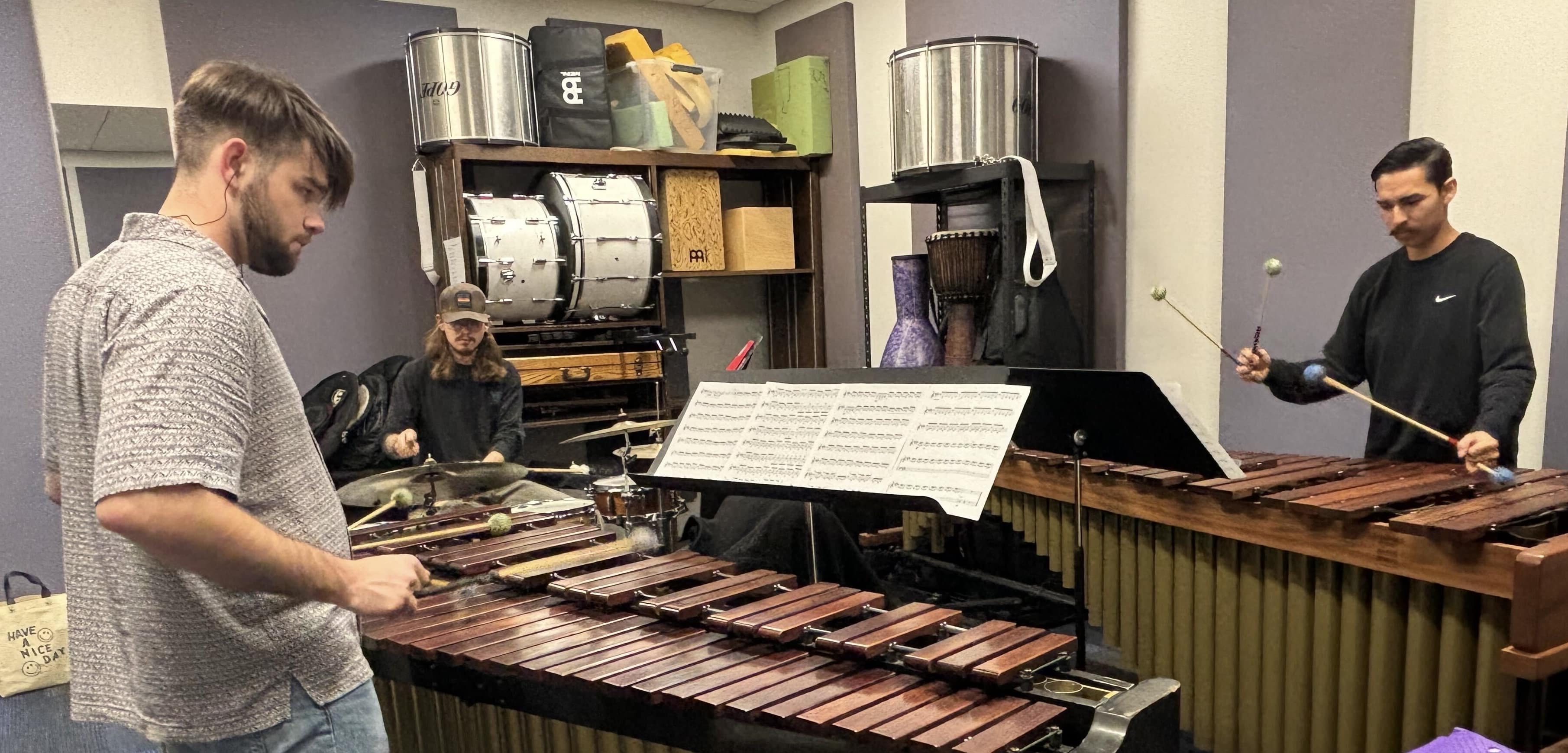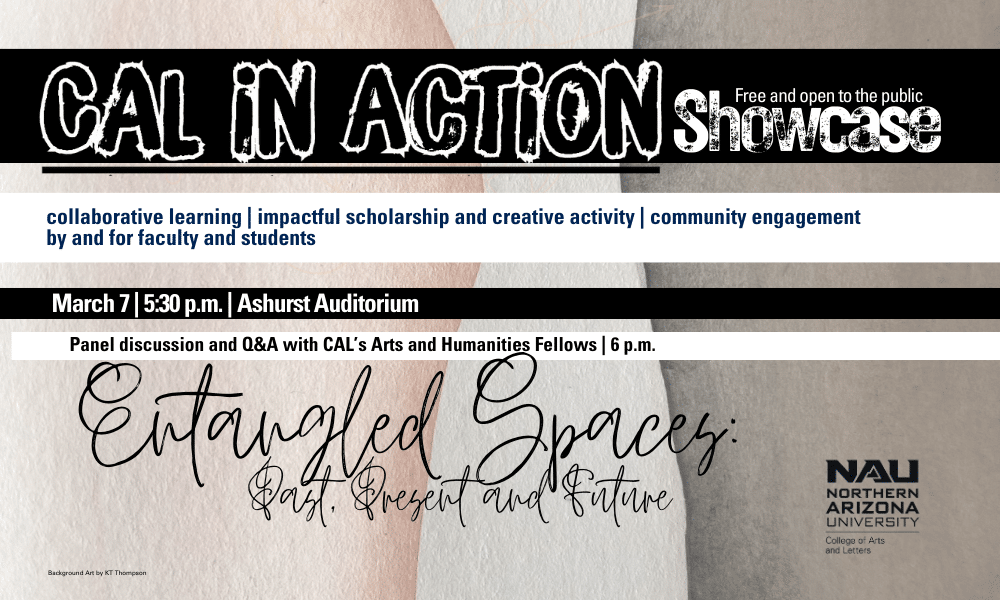How can theater practice transform students into better medical providers? How does creative writing become the catalyst for vibrant community relationships? How can photographs shine a light on a humanitarian crisis? What roles do the arts and humanities play in the world beyond their studios, classrooms, publications and exhibits?

Featuring table displays from NAU’s departments of comparative cultural studies, English, philosophy and theater as well as the School of Art + Design, the Kitt School of Music and the Martin-Springer Institute, the CAL in ACTION showcase will highlight the multitude of collaborative projects overseen by the college and give visitors from both the NAU community and the public an opportunity to learn more about how arts and humanities matter to the world.
The showcase’s signature event, “Entangled Spaces: Past, Present and Future”—a reference to Charles Darwin’s advice to reflect on the rich interdependency of natural systems—will be a conversation with CAL’s three inaugural arts and humanities fellows, Kyoungmee (Kate) Byun, Kent Linthicum and KT Thompson—all faculty members working on projects that address the year’s theme of environment and sustainability.
“We not only hope that people will gain a better understanding of the diversity of the activities and outreach that CAL faculty and students are engaged with, but also that the projects on display and the panel discussion with the AH Fellows will inspire new ways to see what is going on around them,” said Alexandra Carpino, CAL associate dean and the event organizer.

Byun’s project, which incorporates interior design elements that support students with autism spectrum disorder into student housing, shows how human-centered design can make a profound difference in people’s lives. “My hope,” she said, “is that this initiative highlights the power of thoughtful design in crafting spaces that promote inclusivity and understanding.”
Thompson said of their work that they learn by crossing disciplinary thresholds: “The most perplexing and innervating questions for me emerge when poetry and physics meet.” Their current project is concerned with a North American repository of nuclear waste left from the Manhattan Project and the artists and designers tasked with communicating messages of the site’s mortal danger for the next 10,000 years.
Linthicum’s work looks to the past—specifically to literary representations of both slavery and coal in the 18th and 19th centuries—to inform the present and future. In his nearly finished manuscript, he makes the case that because the coal industry and the labor of enslaved Black peoples were believed to be similar, ideas about energy and race became entangled. He believes a better understanding of this symbolic entanglement could help with today’s decarbonization efforts.

After the panel discussion and Q&A with AH Fellows at 6 p.m., percussion students from the Kitt School of Music will perform “Catching Shadows” by Ivan Treviño.
This event is free and open to the public.
Jessica Clark | NAU Communications
jessica.clark@nau.edu




